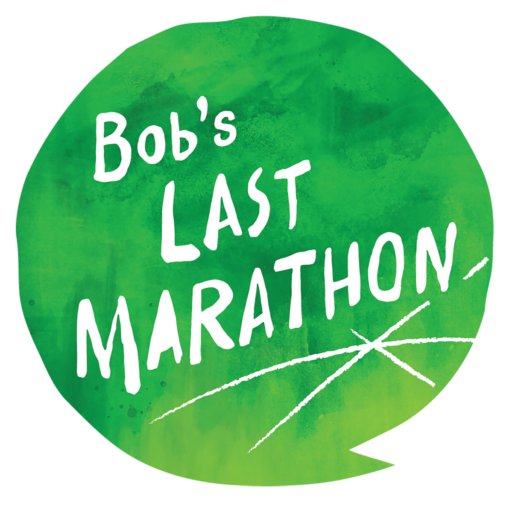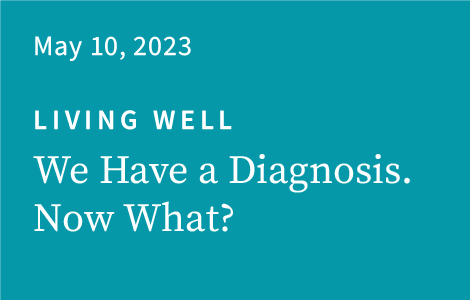Transcript
Now What?
A dropped word here, a missed appointment there. A fender bender, forgetting the name of a neighbor. Are these warning signs of cognitive decline? Not necessarily, but sometimes they are. It’s not uncommon for families to brush off some of these signs and to minimize or ignore them, even when the signs rise to the level of real concern. Pursuing a diagnostic workup can be scary. Some common questions among families are, “What if there is a problem? What will happen to us? There isn’t a treatment anyway, so why bother?” These are normal and understandable concerns. But I want to make the argument that getting a workup early on, when the signs are still mild and subtle, has real value.
As difficult as it can be to face reality and seek out a diagnosis, doing so could provide a sense of relief. First of all, not every dropped word or memory blip leads to a dementia diagnosis. Sometimes there are reasons why a person is experiencing memory loss that can be treated. Significant anxiety or depression can be resolved with medications and/or therapy, or someone might have a vitamin B deficiency that if resolved can reverse symptoms. But if the diagnosis does reveal pathology causing Alzheimer’s disease or a related dementia, families have that information and can begin to make plans for the future. Once a diagnosis is received, it can at first feel overwhelming and unreal. But those who do are not alone—there are resources and support to help families navigate the difficult terrain of aging and dementia.
Getting an accurate diagnosis can be complicated, so, if possible, seek out a neurologist, geriatrician, or psychiatrist who is considered a memory specialist, someone who has training in diagnosing and treating dementias. A proper workup consists of tests of one’s memory and thinking, a neurological examination, labs, and imaging. Ideally, the person being evaluated will be accompanied by a spouse or other family member who knows them well and can serve as a “reliable informant”—someone who can share examples of some of the problems the person is experiencing in life. Often, a person with memory impairment doesn’t remember or have insight into the problems, so an accurate description of daily function by such an informant is a valuable part of the diagnostic process. If your doctor’s office doesn’t offer such tests, you may ask for a referral to a more comprehensive practice where these tools are available. It’s important to remember that there is variability in the process and that it’s okay to seek a second opinion.
Once a diagnosis has been determined, this information will allow you to take action. Education, securing resources for support, financial planning, and creating a safe environment are just a few examples of actions families can take to help them maximize quality of life while living with dementia. Educate yourself on the diagnosis and learn what to expect as it progresses. If you live near an NIH-designated Alzheimer’s Disease Research Center (or ADRC), you may have access to a social worker who can connect you with resources in the practice or in your community. If this service is not available, the Alzheimer’s and Related Dementias Education and Referral Center (or ADEAR), the Alzheimer’s Association, and the Alzheimer’s Foundation of America have websites brimming with information about the dementias and what to expect. In addition to education, your provider’s office or one of these organizations can connect you with resources for social and emotional support.
Families who know they have a dementia diagnosis can make plans, and can get their legal, financial, and long-term planning affairs in order. When a diagnosis is given early, when the person affected is in the mild stages, they still have the capacity to make their own decisions about their will, living will, and medical and financial powers of attorney. They can also express their wishes about long-term care as their illness progresses. Meet with an elder law attorney to help draft these legal and financial documents. If you don’t have an elder law attorney, you can visit the National Academy of Elder Law Attorneys on the Internet to find one.
People experiencing dementia can benefit from strategies to help them compensate for memory loss and maintain independence. Simple memory aids like calendars, whiteboards, and pillboxes can help people remember appointments and manage medications. Family and friends can be called upon to help with meal preparation or delivery services, bill paying, shopping, or transportation. Technology should be considered for medication management and for safety concerns, such as door alarms or emergency response tools. Technology is available for tracking people with dementia should they get lost. On the topic of safety, we can’t avoid talking about driving. Dementia causes changes in the brain that result in impaired judgment and a slower reaction speed or response time, which makes driving unsafe. Talk to your doctor if you have concerns about driving, or if you are supporting someone with dementia that you have concerns about. If their ability to drive safely is questionable, seek an independent driving evaluation. In some cases, if the person with dementia is deemed too impaired to drive, your doctor may have to file a report about the diagnosis to the DMV. No one takes pleasure in this, but it is the law in many states and is not designed as a punishment, but as a way to protect the driver and everyone else on the road.
One of the biggest reasons to seek an early evaluation is treatment. Donepezil and memantine can be prescribed to slow the progression. A new drug, lecanemab, was recently approved by the FDA as a treatment for Alzheimer’s disease, and it is only available to individuals in the early stages of disease. Finally, there are many clinical trials that may be available to people in the early or mild stages of disease. Ask your doctor about treatments or clinical trials or do an Internet search for information on research opportunities near you.
There are things you can do to improve the quality of life for a loved one who receives a dementia diagnosis. Staying healthy by increasing physical exercise, eating a Mediterranean or heart-healthy diet, and remaining socially engaged can help them feel, and function, better. Staying cognitively engaged can help slow progression, so make a plan for increased brain stimulation. Playing cards, reading the paper or a good book, or going to lectures in your community or online are great ways to do this. If low mood is a concern, find a counselor or consider an antidepressant. If you or your loved one is struggling to accept cognitive change, or if you are having difficulty with relationship changes since the diagnosis, a therapist can help you navigate and accept some of these changes. Ask your doctor for a referral to a therapist with expertise in aging or dementia care.
If your loved one is still in the workforce and receives a diagnosis of dementia, consider talking with them about reducing their hours or switching to a less demanding role. Talk to family and friends about whether to retire or strategize for safe, effective ways to continue working while still in the early stage of illness. There are options such as family leave, disability benefits, or other benefits that might be available.
If you know a person experiencing dementia who lives alone, there are things you can do to support them. Is there an adult child or other family member you can reach out to? Is there a spiritual community that can be called upon to help? It’s important that someone in the person’s community check in regularly, and that an emergency contact be identified. A consultation with an occupational therapist can help modify the person’s house to promote independence and safety. A structured day with activity and routine can be helpful, so enrolling in a day program is a great way to promote engagement and socialization for anyone with dementia and is particularly important for those who live alone.
As tempting as it can be to sweep warning signs under the rug or look the other way, doing so will ultimately prevent the person with dementia from securing valuable resources early on, when they are most beneficial. Knowledge, treatment, planning, and support are critical in optimizing well-being for families living with dementia, and these resources can only be accessed once a diagnosis has been given. You are not alone on this journey; don’t be afraid to ask for help from the professionals available to serve as your guides.
Felicia Greenfield, MSW, LCSW
Executive Director
Penn Memory Center
www.pennmemorycenter.org

